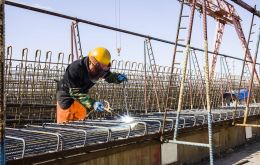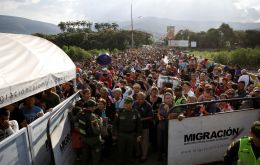MercoPress. South Atlantic News Agency
Politics
-
Thursday, December 6th 2018 - 09:28 UTC
Populism is not an ideology, it's a political technique which thrives on angry people

Five of the world’s largest democracies now have populist governments, claimed The Guardian last week, and proceeded to name four: the United States, India, Brazil and the Philippines. Which is the fifth? At various points it name-checks Turkey, Italy and the United Kingdom, but it never becomes clear which. (And by the way, India’s prime minister Narendra Modi is not a populist. He’s just a nationalist.)
-
Thursday, December 6th 2018 - 09:20 UTC
Illegal financing of political parties now punishable by jail in Peru

Peru's Congress Wednesday passed the bill which adds illicit financing of political organizations to the Penal Code, it was announced.
-
Thursday, December 6th 2018 - 09:00 UTC
Scottish Parliament voted to formally reject UK's draft Brexit deal

The Scottish Parliament has voted by 92 to 29 to formally reject the UK government's draft Brexit deal. SNP, Labour, Green and Lib Dem members at Holyrood backed a motion rejecting the proposals, as well as the prospect of leaving without any deal. However, the parties have not come to a consensus on an alternative plan.
-
Thursday, December 6th 2018 - 08:45 UTC
Argentine manufacturing and construction declines during October

Manufacturing in Argentina fell 6.8% in October year on year, while construction declined 3.7%, and in the first ten months of this year 2.5% and 4.9% respectively according to the Indec statistics bureau report. Firms were hit hard by a contraction in economic activity and the devaluation of the Peso against the US dollar.
-
Thursday, December 6th 2018 - 08:34 UTC
French government suspends fuel tax, but protests continued across the country

The French government's decision to suspend fuel tax and utility hikes on Tuesday did little to appease protesters, who called the move a “first step” and vowed to fight on after large-scale rioting in Paris last weekend.
-
Thursday, December 6th 2018 - 08:28 UTC
Mexican president pressing foreign oil companies to show results

Mexico’s newly inaugurated president Andres Manuel Lopez Obrador, AMLO, is turning up the heat on foreign oil companies to show results before he holds new auctions.
-
Wednesday, December 5th 2018 - 10:21 UTC
Bolivia's electoral court allows Evo to seek reelection despite 21F referendum

Bolivia's Supreme Electoral Court (TSE) Tuesday ruled by 3 votes to 2 that incumbent President Evo Morales and Vice-president Álvaro García Linera were allowed to run at the Movement to Socialism (MAS)'s primary elections to be held on January 27, 2019, where candidates for December's general elections are to be picked.
-
Wednesday, December 5th 2018 - 09:48 UTC
UN seeking US$ 738m to help neighboring countries receiving inflow of millions of Venezuelan refuges

The United Nations said on Tuesday it was seeking US$ 738 million in 2019 to help neighboring countries cope with the inflow of millions of Venezuelan refugees and migrants, who have “no prospect for return in the short to medium term”.
-
Wednesday, December 5th 2018 - 09:40 UTC
Current, former Argentine Defense Ministers exchange accusations in Congress over ARA San Juan

Argentine Defense Minister Oscar Aguad Tuesday said the causes of the ARA San Juan submarine's fate are closer to become known, but he pointed a finger at faulty maintenance between 2008 and 2015 under President Cristina Fernandez de Kirchner (CFK).
-
Wednesday, December 5th 2018 - 09:40 UTC
Will Bolsonaro be able to overcome the traditional “horse trading” of Congress

Traditionally leaders of Brazil have had to offer ministerial posts to allied parties to form a working majority in a Congress that has more than two dozen parties. But following years of corruption scandals that pummeled trust in Brazil’s political establishment, president-elect Jair Bolsonaro has chosen his cabinet ignoring powerful party bosses.
